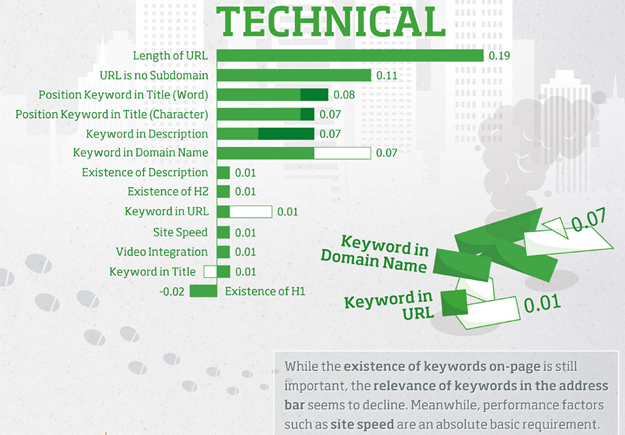Is your domain name remarkable / memorable?
It's your platform, relevant content and where you're linked that matters most. Of course, that's freakin' completely broad of me to say, but that's it in essence. IMO, domain names should pertain more to branding. EMD or exact match domains were supposedly dead, in terms of their SEO ranking prowess.
How to Choose a Domain Name for Maximum SEO
https://www.searchenginejournal.com/choose-a-domain-name-maximum-seo/158951/
Old stuff...
https://moz.com/blog/googles-emd-algo-update-early-data
https://moz.com/blog/are-exact-match-domains-in-decline
https://searchenginewatch.com/2016/...-emd-and-why-does-google-want-to-punish-them/
https://www.flagstonesearchmarketing.com/blog/rewards-and-perils-of-exact-match-domains
Why do EMDs help in ranking?
Exact match domains (and partial match domains) have two ways they might help ranking.
- Keywords in domain
This is a direct benefit provided by the EMD/PMD.
- Keywords in anchor text
We all know that the words used to link to your site (the anchor text) is a factor when it comes to SEO. So much of a factor, in fact, that Google had to introduce the Penguin Update just to try and eliminate the abuse of that factor.
When people link to your site, they often do so using your URL. If your URL has your keywords, the links will naturally contain your keywords. (And not in the spammy sense than Penguin cracked down on.)
Lots of natural links containing your keyword can lead to better rankings for that keyword… as Mark Preston found out when
his site markprestonseo.com ranked locally for Preston SEO (even when he didn’t live in Preston).
So do EMDs help or hurt?
Let’s be clear on why Google would have given less weight to exact match domains.
It’s not the domain – it’s the spam.
Downsides to using an exact match domain for SEO
You might start thinking you can coast on it
As we just saw above, even in 2016,
Gary Illyes is on the lookout for spammy EMDs. Google’s not going to give up on the spam, and so if your EMD is just a low quality shortcut tactic, you’re likely going to experience disappointment, sooner or later.
No branding
Amazon is Amazon is Amazon. If they had started with the domain
www.onlinebookstore.com, there’s more than a chance that would have hurt their memorability, marketing and long-term success in a changing industry.
Using a branded domain gives the impression that you’re serious, big-time and here to stay. It’s easier to remember and find online.
“Why is branding so powerful? Because it differentiates your products and services from your competitors’. A compelling brand creates emotional connections to make it easier for people to relate what they do. The same goes for branded domain names: They don’t appear spammy and are far more memorable than generic keyword-based names.” –
Wordstream
What’s the exact match for your SEO goals in 2017?
Exact and partial match domains clearly do provide some advantage, whether through the domain itself or through the keywords that will occur naturally in links using the URL as anchor text.
Don’t rest on your laurels with an exact match domain, though. Build it – its quality, content and optimization – the same way you would any domain, even a branded one.
If that sounds good to you – go forth with your EMD!
But if you find yourself thinking, “Why would I invest all that effort into a non-branded EMD?” – well, you just got your answer.
https://blog.kissmetrics.com/top-ranked-sites-google/
4. Should You Register a Domain Name with Keywords In It?

The perpetual question that’s always on every marketer’s mind when they launch a new venture – should my domain name include keywords? Currently, Google is paying less attention to this metric than the placement of the keyword in other places, such as in the title, URL, and in both internal and external links. A well-balanced internal linking structure is vital for spreading around all the valuable optimized “link juice.”




 John. Welcome to DealerRefresh.
John. Welcome to DealerRefresh. 



